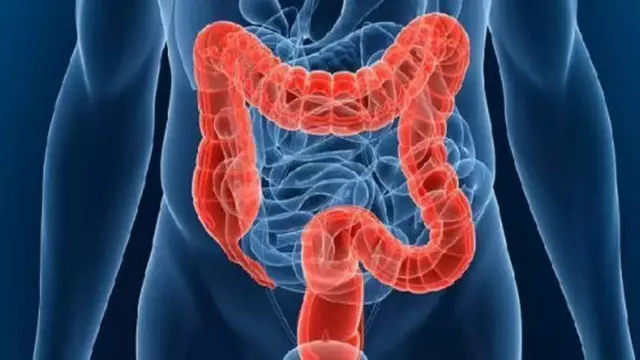- Author Curtis Blomfield blomfield@medicinehelpful.com.
- Public 2023-12-16 20:44.
- Last modified 2025-01-23 17:01.
Gas formation in the intestines is a completely normal physiological process. Improper or irrational nutrition and various diseases of the gastrointestinal tract can lead to excessive formation of gases. In such cases, discomfort and symptoms occur.
Causes of increased gas formation

There are two main causes of gas formation: swallowing air and the result of the vital activity of intestinal microflora and microorganisms. Gases are always present in the intestines. But in the normal process, most of it is belched or absorbed through the intestinal wall.
Gas accumulates if there is a violation of digestion, and mucus forms in the intestines. In this case, intestinal gases turn into many tiny bubbles that envelop the walls, interfering with digestion and absorption. A person suffering from flatulence may feel cramping pains in the abdomen, sometimes there is belching, nausea or vomiting, in rare cases.

One of the most common causes of increased gas formation in he althy people is overeating. Everyone is probably familiar with this condition. There is a feeling of swelling, which is often accompanied by rumbling. This is due to the fact that the digestive tract could not cope with the digestion of such a volume of food. Semi-digested particles got into the lower intestines, began to rot there, causing increased gas formation in the intestines. In this case, the solution is simple - do not overeat.
Gas production in the intestines can become excessive for a variety of reasons:
- Not enough enzymes. It is for this reason that babies often experience bloating. Flatulence can occur in both children and adults in the presence of pancreatitis, duodenitis, gastritis and other diseases associated with a lack of enzymes.
- Dysbacteriosis of various origins.
-

how to treat bloating Surgical interventions that led to impaired intestinal motility. With the slow movement of food masses in the damaged area of the intestine, gas bubbles accumulate.
- Products that stimulate gas formation in the intestines. These include carbonated drinks, lamb (stimulates fermentation processes), kvass.
- Nervous disorders. Increased gas formation in the intestines can be observed as a result of stress or depression. In this case, it is due to smooth muscle spasm.
Determining the cause of excessive gas accumulation allowsprescribe appropriate therapy.
How to treat bloating
Depending on the identified causes, the following treatment is prescribed:
- correcting diet or prescribing nutritional therapy;
- treatment of diseases that caused flatulence;
- restoration of intestinal motility;
- taking drugs to eliminate accumulated gases;
- taking probiotics to restore normal microflora.
Increased gas formation in the intestines is usually treated with a whole range of measures. For their correct appointment, a mandatory appeal to a gastroenterologist is required. Often, flatulence is one of the symptoms of serious diseases (adhesions, tumors), and timely access to a doctor will be the key to correct diagnosis and increase the chances of a cure.






